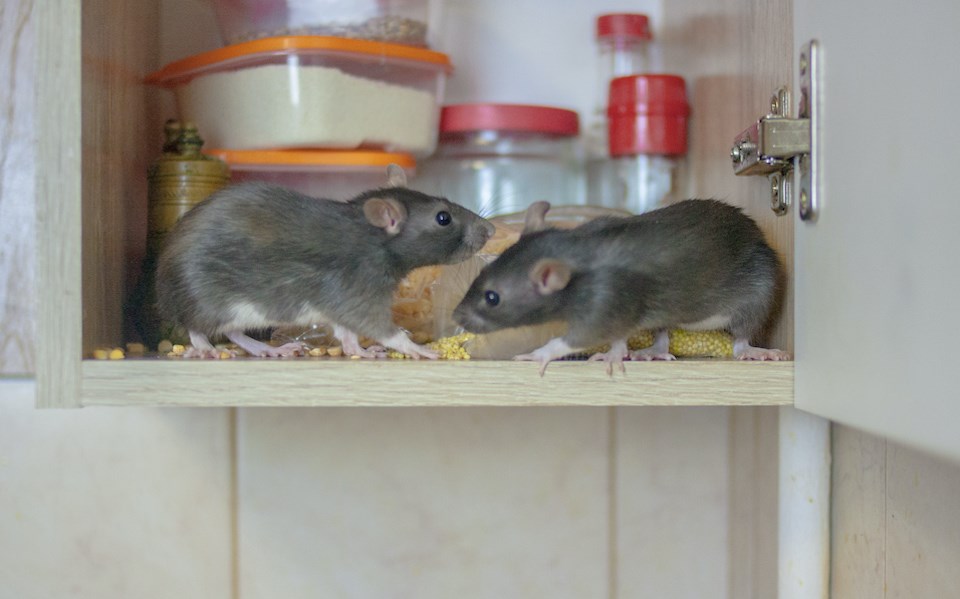A B.C. landlord put a new tenant in a questionable situation that forced them to move out shortly after they moved in.
In a recent , a B.C. landlord filed a claim with the Residential Tenancy Branch (RTB) for unpaid rent, damages, and retention of the damage deposit. Interpreters assisted the tenants because English is not their first language.
The tenants, a husband and wife, moved into the rental unit on Sept. 1, 2023 and signed a one-year contract to expire on Aug. 31, 2024. However, the tenancy only lasted a month and a half due to a persistent pest problem.
The former renters went to see the apartment before they moved in and did not see any evidence of rodents in the unit; they testified that they wouldn't have moved into the unit had they known there were rodent issues.
The new tenants spotted a mouse in their unit within the first week of their tenancy. Shortly after that, the building manager provided them with traps and informed them that there was a sign in the building informing tenants about an ongoing infestation. They were told not to seal the holes in their apartment because they wanted to catch the mice in traps.
A report noted that five mice were caught after the tenants moved in and two companies were hired to handle the issue.
Mouse problem dangerous for renter's health
The wife also said the poison used in the mice traps gave her husband allergic reactions and that he had suffered from a range of health issues, including allergies, asthma and diabetes. He'd also had his gallbladder removed in March 2023.
Before renting the unit, the wife said she told the business manager about her husband's health issues and wanted a place that had not been lived in by a tenant with pets.
The landlord alleged that the building manager told the renters about a previous mouse issue. However, they claimed it was not an ongoing issue when the tenants were shown the unit or when they moved in.
The renters refuted the landlord's claim that they were informed about a previous rodent issue, noting that they never would have moved in if they'd known about it. They added that it was ridiculous to pay $3,000 a month in rent and be expected to continue to catch mice that were coming in through holes.
They also submitted a video of mice running around the unit as evidence.
The tenants gave a notice to end the tenancy by email to their landlord on Sept. 19, 2023, citing a breach of a material term. They said they "hoped" the landlord could find someone by Oct. 14. While the lease wasn't set to expire until the following summer, they could no longer live there given the persistent mouse issue and the husband's health. They also supplied evidence "that no one with allergies or asthma should be near pest poison, droppings or dander," as per Health Canada.
The property manager told the tenants they had to forgo their damage deposit and pay for the full month of October rather than half.
RTB orders renters to pay but doesn't completely side with the landlord
The RTB said it was unreasonable for the renters to continue their tenancy to the end of the lease due to the state of the rental unit. It also believed the tenant's testimony that they wouldn't have ever moved in if they'd known about the mouse issue.
The RTB ruled that the landlord was in breach of a "material term" as per Residential Tenancy Policy Guideline 8.
- Related:
The landlord believed the tenants should have to pay for carpet cleaning due to damages from the mice. Under the Residential Tenancy Act (RTA), tenants are supposed to clean their carpets after a year. However, the board found this was an unreasonable request given the tenants only lived in the space for 44 days and because they didn't cause the infestation.
The landlord was still permitted to one month's rent at $2,995, the strata charges for the fob ($100), the parking pass ($25), BC Hydro charges ($43.12), key cutting ($8.96), and, since they were "partially" successful in their claim, they were entitled to the $100 filing fee.
Since the landlord was permitted to keep the damage deposit ($1,497.50), they were awarded $1,774.58 from the $3,272 total.

